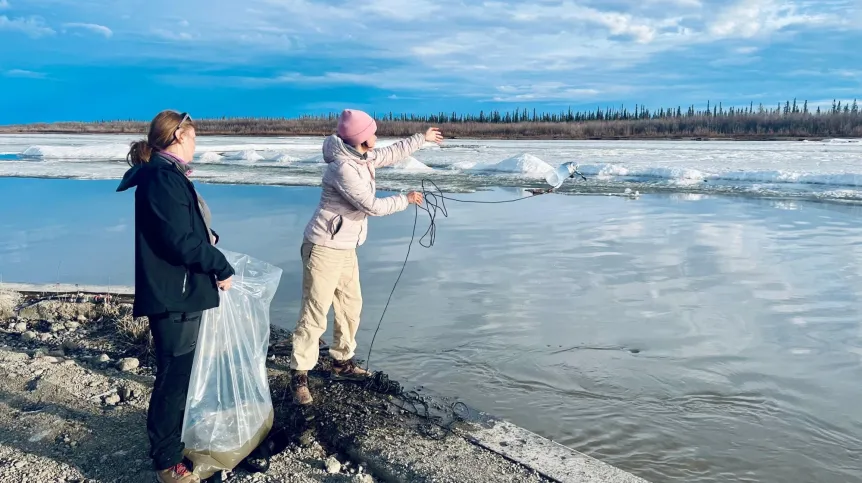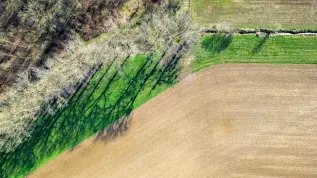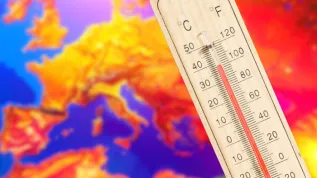
Polish researchers are studying how climate change is reshaping the Mackenzie River Delta in Canada’s Northwest Territories, more than 300 kilometers above the Arctic Circle.
The team is examining how thawing permafrost affects sediment transport, riverbeds, lake depth and shorelines, according to a press release from the Cracow University of Technology.
The work is being conducted by an interdisciplinary group from the Cracow University of Technology, Kazimierz Wielki University in Bydgoszcz, and the Institute of Geography and Spatial Organization of the Polish Academy of Sciences. The team includes physicists, geographers, climate scientists, cartographers, and specialists in hydraulic engineering and numerical modelling.
Scientists aim to determine seasonal changes in sediment transport and how much material lakes in the delta retain. They also plan to study how global warming alters sedimentation processes and the release of particles into rivers and lakes.
Based on the results, experts will develop scenarios of future changes in surface waters, such as lake disappearance or canal silting.
“Sediment shallows sections of rivers, warming the water more quickly, which in turn delivers warmer water to the ocean,” said Monika Szlapa of the Faculty of Environmental and Energy Engineering at the Cracow University of Technology. “In our research, we are investigating whether Arctic deltaic plains act like sponges, meaning to what extent they filter water from mineral and carbon deposits.”
Magdalena Tutro of the Cracow University of Technology added: “The use of numerical simulations of sediment transport in rivers and lakes will help us understand the role of delta lakes in sediment retention.”
Researchers are using Wetland InSAR radar imaging to track ground movement and plan to carry out laboratory simulations of fluid mechanics.
“We also plan to conduct physical simulations in the fluid mechanics laboratory,” said Paweł Hachaj, professor at the Cracow University of Technology.
The Mackenzie Delta, one of the world’s largest, is frozen for seven months of the year. In summer it can only be reached by air or water. “Sediment trapped in rivers and lakes threatens the possibility of water transport and also makes fishing more difficult,” Szlapa said.
The project, Arctic deltas as sponges: How do river deltaic plains now filter and trap sediment and carbon?, is funded by the Polish National Science Centre under the OPUS 27 grant for 2025–2028. Researchers will make six field trips to the Arctic by 2027.
The first, in May 2025, included sample collection near Inuvik, Tuktoyaktuk and Tsiigehtchic. Further missions are scheduled for fall 2025 and spring 2026.
The research is being conducted under a Canadian government license in cooperation with the Inuvialuit indigenous community and the Aurora Research Institute in Inuvik. (PAP)
abu/ agt/












